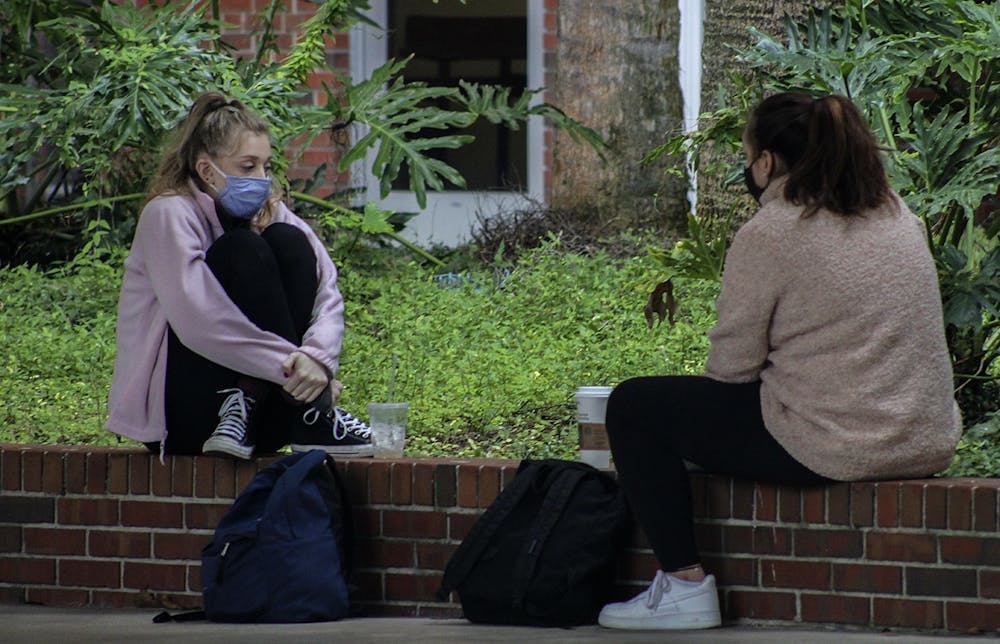Masks should be doubled up or tucked in every day, according to new findings from The Centers for Disease Control and Prevention.
However, UF administration said the university won’t be mandating this new recommendation.
The CDC released a study on Feb. 10 on how double masking or improving fit can help prevent the spread of COVID-19. This is the first scientifically backed recommendation for double masks from the agency.
“We’re aware of the new guidance,” UF Health spokesperson Ken Garcia wrote in an email. “However, we currently are not anticipating any changes.”
Edwin Michael, a University of South Florida College of Public Health professor and epidemiologist, said he passed the study along to the USF pandemic planning group to see if the recommendations should be considered.
But as of Tuesday, no masking updates have been made to USF policy, according to the school’s update listing. Florida State University, University of Central Florida, and University of Miami have also not made any changes.
“I think the message is that universities should consider thinking about advocating, wearing and perhaps supplying two masks,” he wrote in an email.
One caveat might be difficulty with breathing through two masks depending on the material used, Michael said. He believes this could be solved with a good-fitting double-layer mask, he said.
Studies conducted in January showed more effective methods in mask guidelines that slowed disease spread The CDC experimented with double-masking, knotting and tucking medical procedure masks.
In the first experiment, medical procedure masks and cloth masks cloaked alone over mannequin heads blocked about half of the particles from a simulated cough. A combination of the two on one individual blocked 85.4%, according to the study.
The next experiment also showed how a snug fit maximizes safety. By tying a knot where the ear loops attach and tucking in any loose material, total exposure from a simulated cough was reduced by about 60% each for the source wearing a mask versus the receiver, according to the study.
UF associate professor of epidemiology Cindy Prins said she was unable to answer whether UF should take the study into consideration for implementing mandate changes. However, she said she advises people to make their own assessment on how their masks fit. Nylon coverings and mask fitters are alternatives to an extra mask if individuals need to be more protected, she said.
“The idea is that double masking really cuts down on the places where air can escape and where you have gaps,” Prins said.
Masks will also continue to be necessary regardless of vaccine rollout and variant clash, Prins said.
“At this point, we should all still be wearing masks,” Prins said.
Helmut Carter, a 21-year-old UF microbiology junior, said he feels fine with current mask guidelines on campus. He works as lab technician researching genetics, muscular dystrophy and brain development. When he’s not in a lab, Carter is studying at a UF Smathers library.
He thinks it's too late to force mask changes on campus when the school’s lack of control over surrounding places like Midtown is more of an issue.
“The benefit is not enough to justify it,” he said. “Students and staff are starting to get vaccinated. Hopefully this thing will be over, and so we don’t have to tighten restrictions further.”
Contact Manny Rea at mrea@alligator.org. Follow him on Twitter @ReaManny.

Manny Rea is a journalism sophomore and the current health reporter for The Alligator. He worked as a copy editor in his freshman year before moving over to the Avenue in summer 2020. He likes to listen to dollar-bin records and read comics, and he is patiently waiting to go back to movies and concerts.






